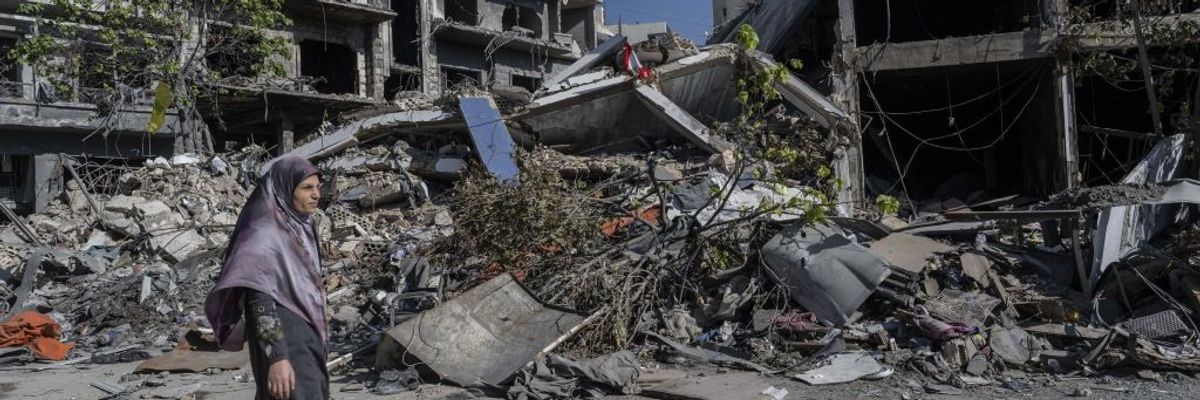The Israeli military on Monday carried out a series of airstrikes in southern Lebanon, killing nearly a dozen people and further imperiling a fragile cease-fire agreement that Israel has been accused of violating dozens of times since the deal took effect last week.
Israel's latest strikes came after Hezbollah fired a pair of projectiles in the direction of Israeli-occupied territory known as Shebaa Farms. Israel's military, which condemned the Hezbollah attack as a violation of the cease-fire deal, said the projectiles did not cause any casualties, as they fell in open areas.
The Israeli outlet Ynetreported that Israel "acted against alleged Hezbollah violations without consulting the international committee tasked with monitoring compliance under the agreement."
CNNnoted Monday that Hezbollah's projectile fire was a response to "repeated Israeli strikes that have hit Lebanon daily since Thursday, the day after the cease-fire came into force." A United Nations peacekeeping source told the outlet that Israel has violated the cease-fire deal "about 100 times."
In a statement, Hezbollah accused Israel of "firing on civilians" and launching "airstrikes in different parts of Lebanon, which led to the death of citizens and the injury of others, in addition to the continued violation of Lebanese airspace by hostile Israeli aircraft reaching the capital Beirut."
The cease-fire deal brokered by France and the United States includes a 60-day period during which Israel must halt "offensive military operations against Lebanese targets" and withdraw its forces from southern Lebanon. The agreement was announced after weeks of relentless Israeli bombings and ground attacks in Lebanon that killed thousands of people and displaced more than a million.
The U.S., Israel's main ally and weapons supplier, assured Israel that a cease-fire agreement would not limit its ability to attack Lebanon whenever it perceives a threat, calling into question the deal's legitimacy.
Asked about alleged violations of the cease-fire agreement, U.S. State Department spokesman Matthew Miller told reporters Monday that "the cease-fire is holding" and the Biden administration is examining potential violations in partnership with the government of France.
"Ultimately, what we don't want to see is the cease-fire break down, and we have not seen the cease-fire break down," Miller said.
But the Biden administration has reportedly told Israel privately that it is "concerned" the cease-fire deal could collapse.
"The Israelis have been playing a dangerous game in recent days," an unnamed U.S. official told Axios.
One Israeli official, according toAxios, "admitted that the current situation could lead to the collapse of the cease-fire but stressed it will depend on how Hezbollah responds" to Israel's latest round of airstrikes.
